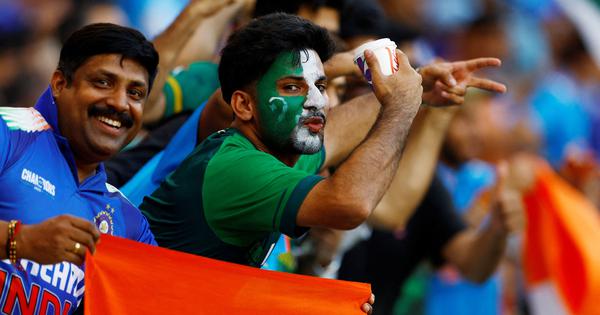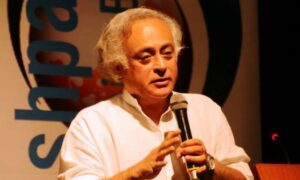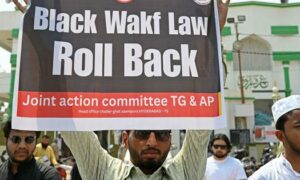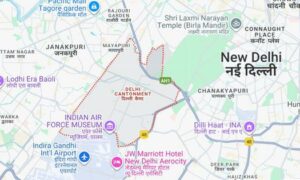
At a press conference after defeating Pakistan in an Asia Cup match in Dubai on Sunday, Indian cricket captain Suryakumar Yadav expressed solidarity with the victims of the Pahalgam terror attack, paid tribute to Indian soldiers and explained why his men had refused to shake hands with the Pakistan team after the game.
Since the attack in April that left 26 people dead and sparked a conflict between India and Pakistan, New Delhi has said that it has shut off all gates to its neighbour, which it blames for offering support to the terror group behind the killings. Many Indians have demanded a complete economic boycott of Pakistan.
Yadav said that the Board of Control for Cricket in India had acted in total alignment with the policy of the Indian government, which has declared that India would not play bilateral matches against Pakistan, not send teams to Pakistan nor host Pakistan teams in India. But New Delhi said that it would be failing its international obligations if India refused to play Pakistan in multilateral competitions in which other countries were participating too.
By participating in the match in Dubai, the Board of Control for Cricket in India demonstrated that it is attempting to play a complex game: it is trying to appease its hyper-nationalist audience at home while simultaneously serving the interests of a global cricket economy.
India’s Asia Cup win over Pakistan has snowballed into controversy!
The PCB has lodged a formal protest with the Asian Cricket Council after Indian players refused to shake hands post-match, calling it “unsporting” and “against the spirit of the game”
Pakistan… pic.twitter.com/MyqXZZu9Qz
— Nabila Jamal (@nabilajamal_) September 15, 2025
Matches between India and Pakistan have never been just cricket. Every encounter is steeped in political undertones. When the Board of Control for Cricket in India and Indian players pretend that they are apolitical actors, they know that no one believes them.
It was evident to all intelligent viewers in India on Sunday that they had indirectly contributed to the Pakistani economy. Sports broadcasting revenues are shared across the crickets boards of participating nations by the centralised media rights deals of the International Cricket Council.
Under the International Cricket Council’s 2024-’27 revenue model, Pakistan receives about 5.75% of the body’s earnings while India gets 38.5%. The Indian board benefits enormously from such games, making a complete boycott financially destructive.
The Indian cricket board has not been participating in any bilaterals with Pakistan since 2012. But because the Indian market itself drives nearly 80%-85% of global cricket’s media revenue, the Indian board has been able to exert disproportionate leverage over other boards. For instance, even though the Champions Trophy earlier this year was hosted by Pakistan, India had its matches moved to neutral Dubai. The fixtures were scheduled to maximise viewership in India.
It is commercially beneficial to keep the India-Pakistan cricket rivalry alive because it generates astronomical revenues. To millions of viewers, the game is marketed as a battle and a war without weapons.
In allowing this rivalry to play out on the cricket field, India allows Pakistan to earn significant revenue, undermining the demand that the country be economically isolated.
Greater than the economic gains for the Indian establishment are the political incentives. It is electorally profitable to stoke nationalist fervour by demonising Pakistan.
If we forfeit #Pak match in #AsiaCup2025 we will “lose points” says I&B minister @ianuragthakur.
So for govt & @BCCI “losing points” is a greater concern than giving Pak an opportunity—win or lose—to engage with India despite #Pahalgam https://t.co/N7QbTtqVBU
— Minhaz Merchant (@MinhazMerchant) September 14, 2025
The refusal of the Indian team to shake hands with their Pakistani counterparts after Sunday’s game was projected as a patriotic gesture, a moral stand against an enemy nation. But to all except the most ardent supporters of the ruling party, it rings hollow. India still showed up, still played the matches, still generated broadcast income for both boards.
It was clear that the refusal to greet the rival team was a symbolic gesture designed to appease a domestic constituency that confuses visible hostility with genuine strategy. It was theatre, not policy.
This is not the first time sport has been placed at the centre of India-Pakistan contradictions. Cricket has historically served as both bridge and battlefield. The 2004 tour to Pakistan, for instance, was hailed as “cricket diplomacy” that thawed relations for a brief period. Similarly, in 2011, Prime Minister Manmohan Singh and his Pakistani counterpart Yusuf Raza Gilani famously sat together during the World Cup semi-final in Mohali, where the event was marketed as much more than sport.
In those moments, cricket was projected as a pathway to dialogue.
Sport is one of the few arenas where ordinary citizens across borders still engage with each other, even if indirectly. Every Indian fan watching a Pakistan innings, every Pakistani fan watching an Indian batting collapse, contributes to a shared cultural moment. The stadium roars, the social media wars, the memes and debates all of these create a public sphere where coexistence, however adversarial, becomes inevitable.
That is why claims of a “complete boycott” of Pakistan ring hollow. In the end, the hypocrisy of India’s ruling establishment lies not in playing matches with Pakistan or even in profiting from cricket games with it – it is in pretending otherwise.
Mohammad Aaquib is a writer and researcher in Kolkata. He works on communalism, political violence, and Muslim identity in contemporary South Asia. His email address is maaquib8th@gmail.com and his Instagram page can be accessed here.
📰 Crime Today News is proudly sponsored by DRYFRUIT & CO – A Brand by eFabby Global LLC
Design & Developed by Yes Mom Hosting






